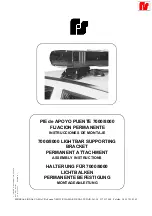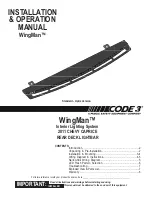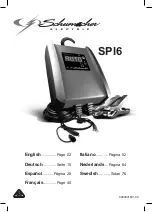
R
Autonomous braking application in order to
reduce the severity of an accident
Evasive Steering Assist
&
WARNING Risk of accident despite Eva-
sive Steering Assist
Evasive Steering Assist cannot always recog-
nise objects or complex traffic situations
clearly.
Moreover, the steering support provided by
Evasive Steering Assist is not sufficient to
avoid a collision.
#
Always pay careful attention to the traffic
situation; do not rely on Evasive Steering
Assist alone.
#
Be prepared to brake or swerve if neces-
sary.
#
End the support by actively steering in
non-critical situations.
#
Drive at an appropriate speed if there
are pedestrians close to the path of your
vehicle.
Evasive Steering Assist has the following charac-
teristics:
R
Detection of pedestrians, cyclists and vehi-
cles.
R
Assistance through power-assisted steering if
it detects a swerving manoeuvre.
R
Activation by an abrupt steering movement
during a swerving manoeuvre.
R
Assistance during swerving and straightening
of the vehicle.
R
Reaction from a speed of approximately
20 km/h up to a speed of approximately
110 km/h.
The steering support of Evasive Steering Assist
can be cancelled at any time by counter steering.
System limits
Full system performance is not yet available for a
short time after switching on the vehicle or after
driving off. As long as the functions are restricted,
the
Æ
warning lamp can also be shown in the
driver's display. Depending on the environmental
conditions, it may take a few minutes before full
system performance is available.
The system may be impaired or may not function,
particularly in the following situations:
R
In snow, rain, fog, heavy spray, if there is glare,
in direct sunlight or in greatly varying light
conditions.
R
If the sensors are dirty, misted up, damaged or
covered. (
/
page 264)
R
If the sensors are impaired due to interference
from other radar sources, e.g. strong radar
reflections in multi-storey car parks.
R
If a loss of tyre pressure or a defective tyre
has been detected and displayed.
R
In complex traffic situations where objects
cannot always be clearly identified.
R
If pedestrians, cyclists or vehicles move
quickly into the sensor detection range.
R
If road users are hidden by other objects or
are located close to other objects.
R
If the typical outline of a pedestrian or cyclist
cannot be distinguished from the background.
R
If a pedestrian or cyclist is not detected as
such, e.g. due to special clothing or other
objects.
290 Driving and parking
Summary of Contents for EQS Saloon 2021
Page 9: ...Left hand drive vehicles 6 At a glance Cockpit...
Page 11: ...Left hand drive vehicles 8 At a glance Cockpit plug in hybrid...
Page 13: ...Standard driver s display 10 At a glance Indicator and warning lamps standard...
Page 17: ...14 At a glance Overhead control panel...
Page 19: ...16 At a glance Door operating unit and seat adjustment...
Page 23: ...20 At a glance Emergencies and breakdowns...
Page 470: ...Fold cover 1 down in the direction of the arrow Breakdown assistance 467...
















































